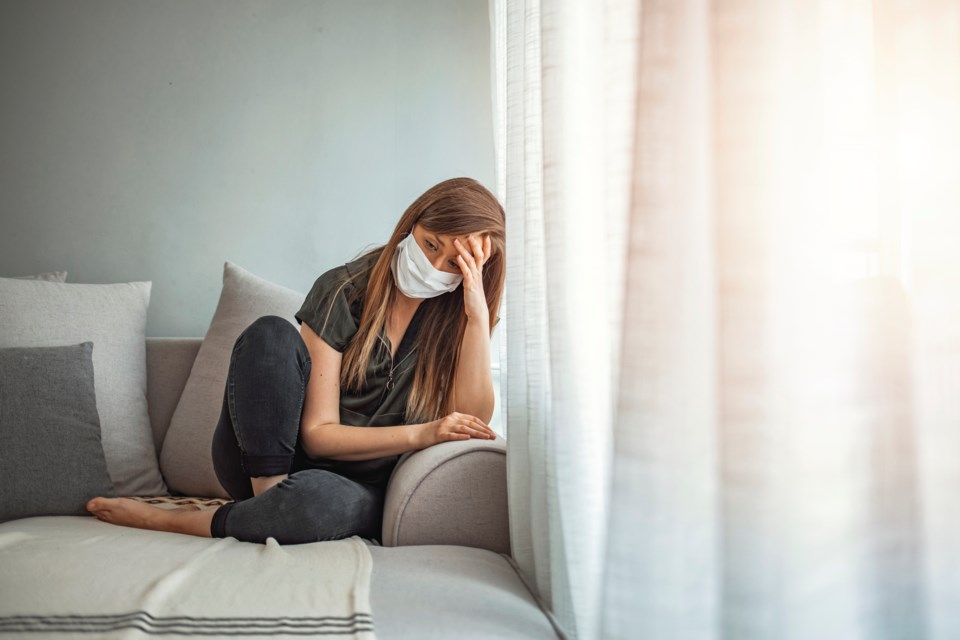If you’re down this holiday season, you’re not alone.
The holidays can be a trying time for many and COVID-19 restrictions on social activities are making it harder for people to get emotional support from their loved ones.
“It’s normal to feel anxious and afraid. Some of us are struggling more than others. We have to recognize that none of us are the same person we were prior to the pandemic,” said Dr. Marietta Van Den Berg, psychiatrist and physician quality lead for Fraser Health. “But, we have to remember we are not the first generation to experience a pandemic, crisis or war, and we will get through this together.”
Among the those who are struggling are young post-secondary students who see their lives changing due to the coronavirus.
With mental health concerns in mind both B.C. government and Fraser Health are offering tips and contact numbers for places to call when things get too challenging.
CRISIS LINE
If you’re feeling lonely or overwhelmed, the 24/7 Fraser Health Crisis Line (604-951-8855 or toll-free at 1-877-820–7444) provides immediate, free and anonymous emotional support, crisis intervention and community resource information, 24 hours a day, every day.
People of all ages can call the Fraser Health Crisis Line if they are experiencing suicidal thoughts or feelings, mental health challenges, substance use issues, family violence, abuse, relationship conflicts, or loss. Trained volunteers are willing to help and listen. They can provide connections to services and resources.
STUDENT SUPPORT
Post-secondary students, have a free, 24-7 counselling and referral service available to them through Here2Talk.
Students can access chat sessions with a trained counsellor online at Here2Talk or by downloading the free Here2Talk app through the Apple App Store or Google Play Store. They can speak with a counsellor by phone toll-free at 1 877 857-3397 or direct at 604 642-5212. Students calling from outside Canada can dial +1 604 642-5212 (international calling charges may apply).
According to the province, young people are particularly hard hit by mental health challenges.
Youth between the ages of 15 and 24 years are more likely to report mental illness and/or substance use disorders than other age groups, influenced by pressures ranging from financial stress to personal relationships, academics, sleep problems and stigma in seeking help.
SELF CARE
However, since Here2Talk launched in April 2020 and through October 2020, the service has been accessed almost 5,200 times. Students used the chat feature 75% of the time and the phone call feature 25% of the time.
Among the other tips offered this season, according to Fraser Health, are the need to get proper rest, pace yourself, and connect with others.
While the tendency is strong to over react to challenging situations, the health authority reminds individuals to listen to their body.
“A sinking feeling in the chest or tense shoulders may be a signal that something is wrong emotionally. Be mindful of jumping to worst-case scenarios, overreacting and being overly negative.”



